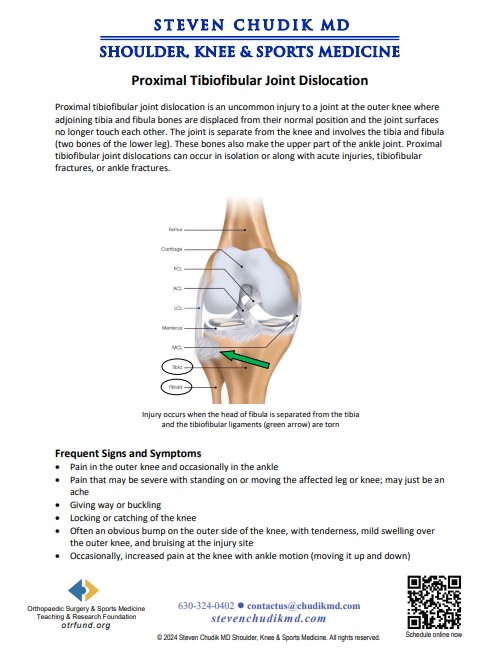 A race against time: Frantz's passion versus prudence
A race against time: Frantz's passion versus prudence
Proximal tibiofibular joint dislocation is an uncommon injury to a joint at the outer knee where adjoining bones are displaced from their normal position and the joint surfaces no longer touch each other. The joint is actually outside the knee and involves the two bones of the lower leg (tibia and fibula). These bones also make the upper part of the ankle joint. Subluxation of this joint is also uncommon; this is when the joint surfaces still touch but are not in normal relationship to each other. This injury may occur with a fracture of one or both of the leg bones
There are many causes of this uncommon injury. They include direct blow to a bent knee, twisting injury, ankle fracture-dislocation, infection, growth disturbance, and other non–sports-related causes, including congenital problems (you are born with it). One of the most common causes is falling in the “hurdler’s” position. It may occur without injury in people with loose joints.
After immediate reduction (repositioning of the bones of the joint) by trained medical personnel, treatment consists of ice and medications to relieve pain. Although reduction can be performed without surgery, surgery is occasionally necessary to restore the joint to its normal position if this is not possible without surgery. Elevating the injured foot and ankle at or above heart level helps in reducing swelling. Immobilization by splinting, casting, or bracing for two to eight weeks may be recommended to protect the joint while the ligaments heal. Other options include therapy to strengthen the hamstring muscles and surgery to fix the torn ligaments or hold the joint in place. After immobilization or surgery, strengthening and stretching of the injured and weakened joint and surrounding muscles (due to immobilization and the injury) are necessary. These may be done with or without the assistance of a physical therapist or athletic trainer. Surgery is usually only needed if the dislocation cannot be reduced or if there are recurrent dislocations.
Learn More
Content provided by Dr. Chudik not to be used for diagnosis and treatment. You can receive a proper evaluation and diagnosis by making an appointment with Dr. Chudik